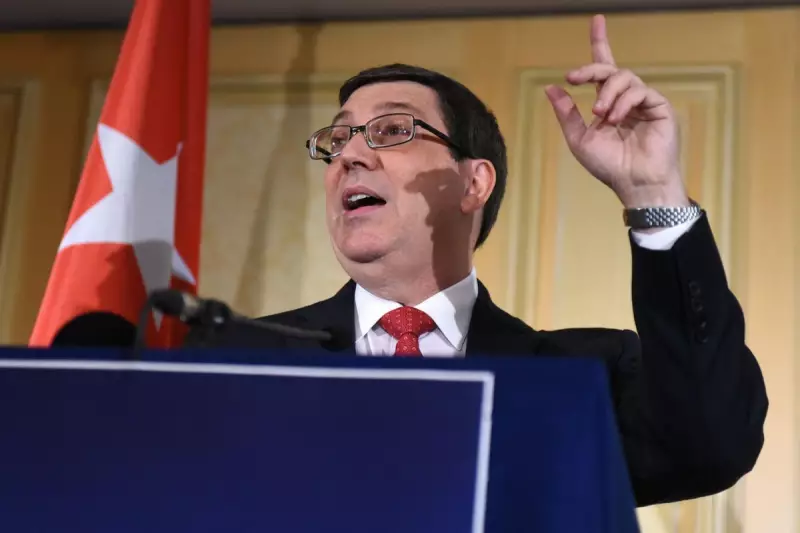
The United Nations General Assembly has delivered a powerful rebuke to the United States, voting overwhelmingly to demand an end to the six-decade-long economic embargo against Cuba. This marks the 31st consecutive year the international body has condemned the controversial sanctions.
The vote saw 187 nations support the resolution, with only the United States and Israel voting against it. Ukraine notably abstained from the vote, reflecting the complex geopolitical landscape.
Global Condemnation of 'Economic Warfare'
During the heated debate, Cuban Foreign Minister Bruno Rodríguez didn't mince words, describing the embargo as an act of "economic warfare" that has cost his country over $1 trillion in damages when adjusted for inflation. He presented a stark picture of the embargo's impact on ordinary Cubans.
"The embargo is the main obstacle to our development," Rodríguez stated before the assembly. "It's a massive, flagrant, and systematic violation of the human rights of all Cubans."
US Defends Position Amid Growing Isolation
The United States found itself increasingly isolated in its defence of the embargo. Senior US diplomat Paul Folmsbee argued that the sanctions represent "one tool in our broader effort toward Cuba" and urged other nations to support the Cuban people's "pursuit of a future with respect for human rights and fundamental freedoms."
However, this position received little support from the international community. Representatives from China, Russia, and numerous developing nations spoke out strongly against what they characterised as an outdated and punitive policy.
Growing International Pressure
The vote comes amid increasing global calls for Washington to reconsider its approach to Cuba. Many nations argued that the embargo has failed to achieve its political objectives while causing significant humanitarian suffering.
Several European and Latin American delegates privately expressed frustration with the US stance, suggesting that the policy has become counterproductive to regional stability and economic development.
As the world continues to grapple with multiple crises, the annual UN vote serves as a stark reminder of Washington's dwindling international support for one of its longest-standing foreign policies.





